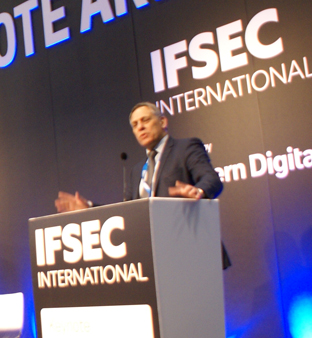Here we round off the talk we had over the phone with Dr David Rubens for his views on Covid-19 and its management so far. His pedigree; besides his study and consultancy in risk management, he was the founder and is the executive director of the Institute of Strategic Risk Management (ISRM).
Professional Security made a point about how the pandemic was unlike other crises – whether an act of terror, a flood, or dam at risk of bursting: as coronavirus is afflicting the planet, there is no cavalry to ride to the rescue, no area free of the crisis that can deliver aid. To that David mentions what the ISRM’s very first ‘campfire’ identified: ‘where is the global leadership?’ He does not speak of US President Donald Trump, but rather; for all the talk of globalisation, and global institutions, what happens when there is a genuinely global event – what is there from the United Nations, the European Union, the G20 group of most developed nations? Response has been on a country-by-country basis, whether trying to procure and buy equipment, or developing policies. As an example, David raises neighbouring countries, Switzerland and Germany; ‘completely opposite attitudes to social distancing and opening up economies’.
David returns to his point that Covid-19 is ‘not that bad; this is not the big one’. Something else might come. “We think that working from home is the solution; what happens if the next big one is solar flares, that burn out satellite systems and all our comms do down; then working from home is not the solution.”
Are we going to learn from this, Covid-19? David asks, ‘and are we going to put stuff in place, or talk for three months and then go back to ‘business as usual’ in terms of crisis management’.
If Covid-19 is teaching us anything (to leave David for a second), it is that major incidents do happen. David raises other ones, that like a pandemic are aired, and are on the UK’s and other national risk registers. Such as floods, rising sea levels that mean that flooding of coastal cities is not a once in a hundred year event, but maybe once every two years. How to adapt and manage a city then? Or, cities may run short of water; or face extreme heat of temperatures of up to 50 degrees C; there may be further pandemics. Or resource depletion; or, IT failures and failures of infrastructure (David’s doctorate gained at the University of Portsmouth was (if it’s at all proper to boil a doctorate down into a few words) about such things; and about how, in an ever more networked, and complex society, when something goes wrong, such as an ATM system failure – whether due to human error, accident or malicious attack – further, cascading failures follow. “We have got to understand what a VUCA [volatile, uncertain, complex and ambiguous] world looks like.”
David closes with a long view, rarely aired so far during this crisis. It’s going to be generational. Think of children’s interrupted education; think also of how those children in 70, 80 years will talk to their grandchildren about the spring of 2020, when Covid-19 hit the planet, and changed our lives.
For the ISRM’s webinars and ‘campfires’, visit https://www.theisrm.org/en/coronavirus-fast-learning-project.
Picture by Mark Rowe: Dr David Rubens speaking at IFSEC 2019.










